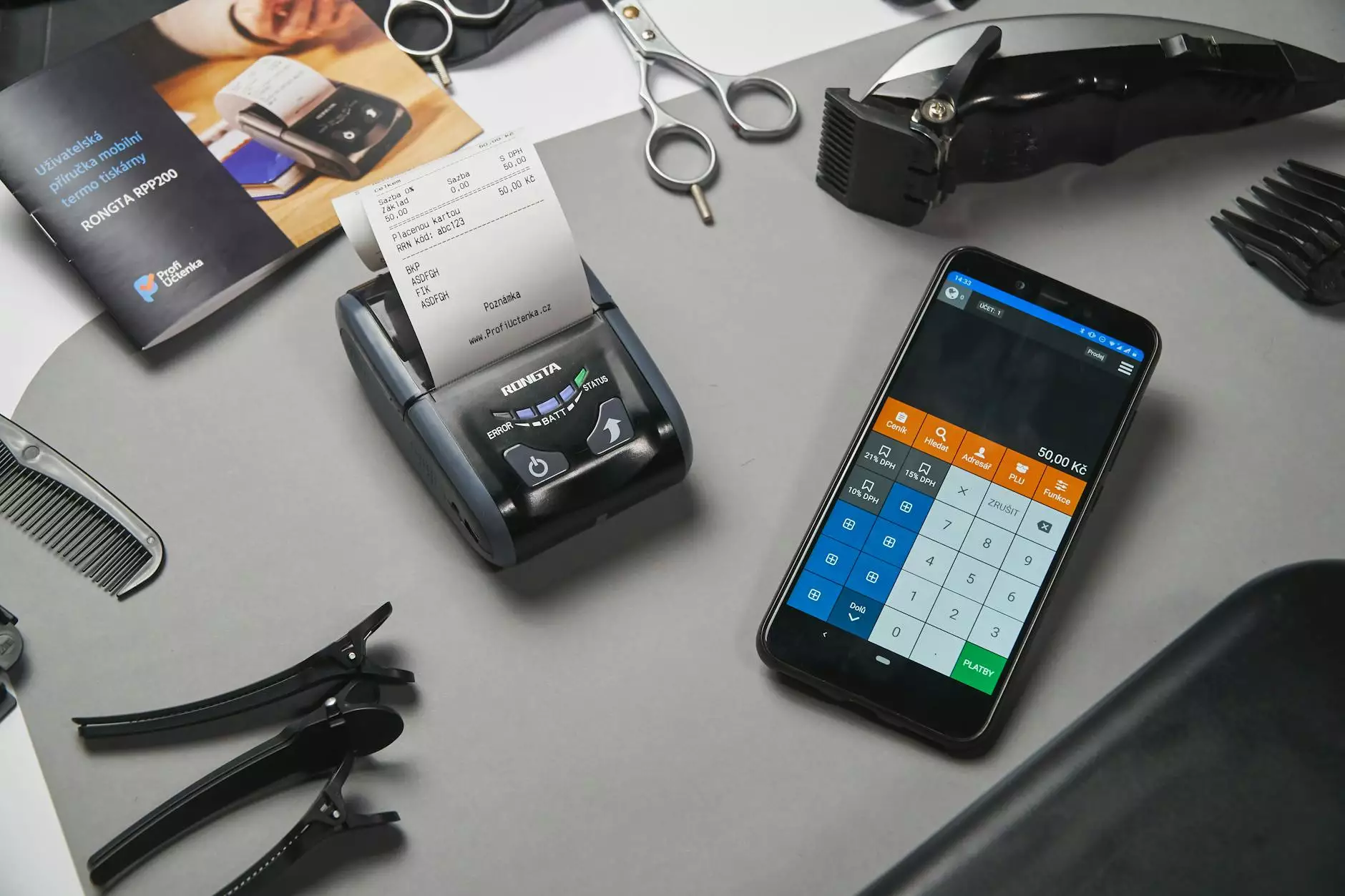Unlocking Business Efficiency: The Role of Code Scanners

In today's fast-paced business landscape, companies are continually seeking innovative solutions that enhance efficiency and streamline operations. One such technological advancement that has significantly impacted various industries is the code scanner. This versatile device has transformed the way businesses handle data, manage inventory, and interact with customers. In this comprehensive article, we will explore the numerous ways in which code scanners contribute to business success, particularly in the realms of printing services and electronics.
What is a Code Scanner?
A code scanner is a device designed to read and decode information contained in barcodes, QR codes, and other similar identifiers. These codes are typically printed on products, packaging, or labels and are instrumental in facilitating the tracking and management of items across various sectors. Code scanners can be handheld or fixed, and they operate using various technologies, including laser, imaging, and infrared scanning.
Types of Code Scanners
Understanding the types of code scanners available is crucial for businesses considering their implementation. Here are the primary types:
- Laser Scanners: These scanners use laser beams to read barcodes and are known for their speed and accuracy. They are ideal for environments where high-speed scanning is essential.
- Imaging Scanners: Utilizing camera technology, imaging scanners can capture and decode multiple types of codes, including 1D and 2D codes like QR codes. These are highly versatile and often used in retail and logistics.
- Fixed-Mount Scanners: These are stationary scanners designed for specific applications, such as conveyor belts in warehouses. They provide a high level of automation and efficiency.
- Handheld Scanners: Portable and user-friendly, handheld scanners enable employees to scan items wherever they are, making them ideal for inventory management and point-of-sale systems.
The Importance of Code Scanners in Business
Integrating code scanners into business practices can lead to significant improvements and optimizations. Here are some key reasons why businesses should consider adopting this technology:
1. Enhanced Efficiency
In the retail and logistics sectors, time is of the essence. Code scanners allow for rapid data entry and retrieval, reducing the time staff members spend on manual data entry tasks. According to industry studies, businesses can experience up to a 20% increase in efficiency upon implementing scanning solutions.
2. Improved Accuracy
Manual data entry is prone to human error, which can lead to discrepancies and costly mistakes. Code scanners minimize the risks associated with incorrect data entry. Scanners typically achieve a read rate of over 99%, ensuring that the information captured is accurate and reliable.
3. Streamlined Inventory Management
Effective inventory management is vital for success, particularly in industries like retail and manufacturing. Code scanners facilitate real-time inventory tracking, enabling businesses to maintain optimal stock levels. This capability reduces the chances of overstocking or stockouts, leading to improved sales and customer satisfaction.
4. Enhanced Customer Experience
In the digital age, customers expect quick and efficient service. By using code scanners at points of sale, businesses can expedite transactions, thereby enhancing customer satisfaction. Furthermore, loyalty programs that rely on barcode scanning create a seamless experience leading to better customer retention.
Applications of Code Scanners in Different Industries
The versatility of code scanners makes them applicable in a variety of industries. Below are some examples of how different sectors benefit from this technology:
1. Retail
In retail environments, code scanners streamline the checkout process, manage stock efficiently, and improve customer service. With the ability to quickly retrieve product information and prices, retailers can enhance the shopping experience. Moreover, coupons and loyalty programs that utilize QR codes further attract customers.
2. Manufacturing
In manufacturing, code scanners facilitate the tracking of parts and materials throughout production processes. They ensure that the right components are used in assembling products and help maintain manufacturer compliance by providing accurate records of how items were created, where they were sourced, and when they were used.
3. Healthcare
The healthcare industry relies heavily on code scanners for tracking patient medications, lab samples, and medical equipment. Ensuring that the right treatment is given to the right patient is vital—the ability to scan codes minimizes the risk of errors and boosts safety protocols.
4. Logistics and Supply Chain Management
Logistics companies utilize code scanners to track shipments, manage warehouse inventory, and optimize the supply chain. The real-time visibility that comes from tracking items as they move helps streamline operations, ensuring on-time deliveries and reducing costs.
Choosing the Right Code Scanner for Your Business
When considering the integration of code scanners into your business, it is essential to choose the right type suitable for your specific needs. Here are some factors to keep in mind:
1. Type of Code
Determine the type of codes that your business primarily uses (1D barcodes, 2D barcodes, etc.) to select a scanner that can handle those formats effectively.
2. Environment
Consider where the scanner will be used. For example, a rugged handheld scanner may be optimal for warehouse environments, while a sleek imaging scanner might be better suited for retail checkout lines.
3. Connectivity
Scanners can connect via USB, Bluetooth, or Wi-Fi. Assess your existing systems to choose a scanner that integrates seamlessly with your current technology infrastructure.
4. Budget and ROI
Evaluate the cost of the code scanner against the expected return on investment (ROI). High-quality scanners may have a higher upfront cost but can save your business significant time and money in the long run.
Conclusion
In conclusion, the implementation of code scanners can provide transformational benefits across various business operations, particularly in the sectors of printing services and electronics. With advancements in technology, today's code scanners offer speed, accuracy, and versatility that can help businesses thrive in a competitive landscape. By enhancing efficiency, improving customer experience, and streamlining inventory management, code scanners are an invaluable asset for any modern enterprise. As businesses look to the future, integrating this technology will not only be beneficial but essential for growth and success.
To stay ahead of the competition and capitalize on these advantages, businesses should consider investing in the latest code scanner technology. Reach out to us at Durafast Label to learn more about our printing services and innovative solutions that can enhance your operational efficiencies.



